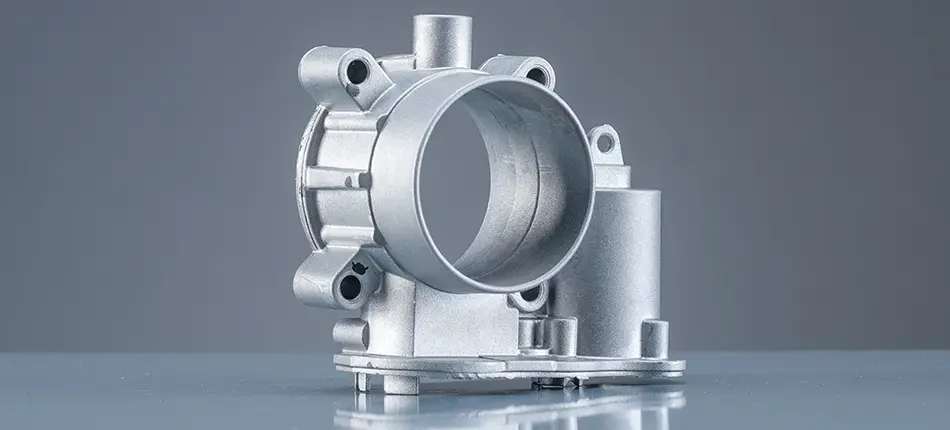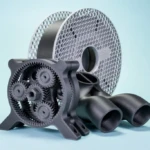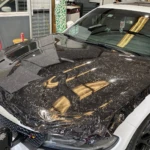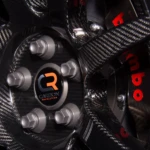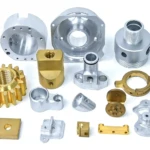The Ultimate Guide to Magnesium Die Casting: Properties, Types, and Applications
Introduction
In the ever-evolving world of manufacturing, magnesium die casting stands out as a revolutionary process that combines exceptional lightness with remarkable strength. As industries increasingly demand lighter, stronger, and more sustainable materials, magnesium die casting has emerged as a game-changing solution.
Understanding Magnesium as a Die Casting Material
The Fundamentals of Magnesium
Magnesium holds the distinction of being the lightest structural metal available for commercial use. With a density approximately two-thirds that of aluminum and one-quarter that of steel, it offers unprecedented opportunities for weight reduction in manufacturing.
Key Physical Properties
- Density: 1.74 g/cm³
- Melting Point: 650°C (1202°F)
- Thermal Conductivity: 156 W/m·K
- Electrical Conductivity: 22.4 MS/m
- Young’s Modulus: 45 GPa
Advantages of Magnesium Die Casting
Structural Benefits
- Unparalleled Weight Reduction
- 33% lighter than aluminum
- 75% lighter than steel
- Comparable weight to plastics
- Mechanical Properties
- High specific strength
- Excellent stiffness-to-weight ratio
- Superior dimensional stability
- High impact and dent resistance
Manufacturing Advantages
- Processing Characteristics
- Excellent thin-wall capabilities (as thin as 0.5mm)
- High dimensional accuracy
- Rapid solidification rates
- Superior detail reproduction
- Production Efficiency
- Fast cycling times
- Lower energy requirements
- Reduced wear on die casting tools
- Extended die life compared to aluminum
Functional Properties
- Electromagnetic Performance
- Superior EMI/RFI shielding
- High electrical conductivity
- Excellent thermal dissipation
- Environmental Characteristics
- Complete recyclability
- Lower energy consumption in processing
- Reduced carbon footprint
- Good corrosion resistance with proper treatment
Common Magnesium Die Casting Alloys
AZ91D: The Industry Standard
Composition:
- 9% Aluminum
- 1% Zinc
- Balance Magnesium
Key Properties:
- Excellent castability
- High strength at room temperature
- Good corrosion resistance
- Superior finish characteristics
Typical Applications:
- Automotive components
- Electronic housings
- Aerospace parts
- Power tool casings
AM60B: The Impact Resistant Option
Composition:
- 6% Aluminum
- 0.3% Manganese
- Balance Magnesium
Key Properties:
- Superior ductility
- High impact resistance
- Good castability
- Excellent vibration dampening
Typical Applications:
- Automotive safety components
- Sporting equipment
- Industrial machinery
AM50A: The Balanced Performer
Composition:
- 5% Aluminum
- 0.3% Manganese
- Balance Magnesium
Key Properties:
- Balanced strength and ductility
- Good energy absorption
- Excellent thin-wall capabilities
Typical Applications:
- Automotive interior components
- Consumer electronics
- Medical equipment housings
Applications Across Industries
Automotive Sector
- Structural Components
- Steering wheel cores
- Seat frames
- Dashboard support structures
- Transmission cases
- Non-Structural Parts
- Interior trim components
- Mirror housings
- Steering column covers
- Door frames
Electronics Industry
- Consumer Electronics
- Laptop housings
- Camera bodies
- Mobile phone frames
- Tablet enclosures
- Professional Equipment
- Medical imaging equipment
- Laboratory instruments
- Professional camera equipment
- Broadcasting equipment
Aerospace and Defense
- Aircraft Components
- Control surface housings
- Auxiliary gear boxes
- Electronic enclosures
- Interior components
- Military Applications
- Portable equipment housings
- Communication device enclosures
- Optical system components
Processing Considerations
Design Guidelines
- Wall Thickness
- Minimum: 0.5mm
- Optimal: 1.5-2.5mm
- Maximum: 4.0mm for most applications
- Draft Angles
- Minimum: 1°
- Recommended: 2-3°
- Deep ribs: 3-5°
Surface Treatment Options
- Corrosion Protection
- Chrome conversion coating
- Anodizing
- E-coating
- Powder coating
- Aesthetic Finishes
- Painting
- Polishing
- Texturing
- Plating
Future Trends and Innovations
Emerging Technologies
- Advanced Alloy Development
- High-temperature resistant alloys
- Enhanced corrosion resistance
- Improved mechanical properties
- Processing Improvements
- Semi-solid casting techniques
- Advanced thermal management
- Automated process control
Market Growth Areas
- Electric Vehicles
- Battery housings
- Structural components
- Charging infrastructure
- Sustainable Manufacturing
- Recycling technologies
- Energy-efficient processing
- Carbon footprint reduction
Conclusion
Magnesium die casting represents a crucial technology in modern manufacturing, offering an unmatched combination of lightweight properties and structural performance. As industries continue to prioritize weight reduction and sustainability, magnesium die casting will play an increasingly important role in shaping the future of manufacturing. Its versatility, combined with ongoing technological advancements, positions it as a key material solution for the challenges of tomorrow.
Best Practices for Success
- Partner with experienced die casters
- Invest in proper design optimization
- Consider the entire product lifecycle
- Implement appropriate surface treatments
- Maintain strict quality control measures
- Stay updated on technological advances
